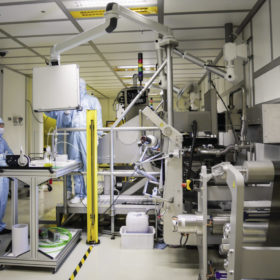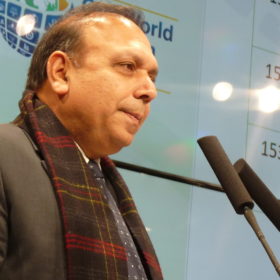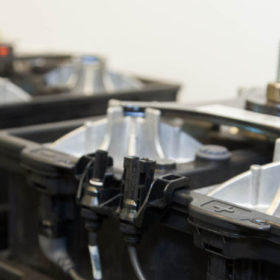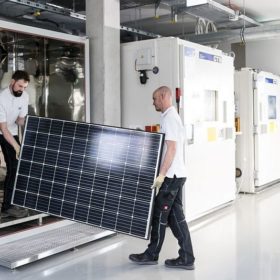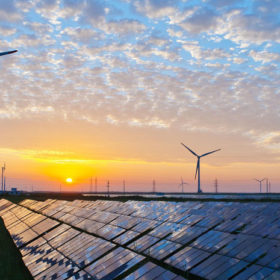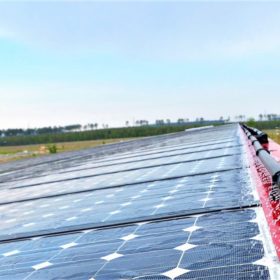The long read: 2020 is the decade of perovskite PV
About 10 years ago, perovskite solar cells (PSCs) made their entry into the world of PV with a power conversion efficiency of 3.8%. Fast forward to 2020, and PSCs are the talk of the town, with a string of impressive laboratory achievements to their name. Global research efforts have shifted toward PSCs as efficiencies keep on getting thrashed on a regular basis. But is it too soon to say that the technology is ready for commercialization?
MNRE backs multi-pronged approach to support solar sector
The Indian government is working on the creation of a Rs 10,000 crore (US$1.3 billion) alternative investment fund to provide payments to PV developers.
Covid-19: Solar cell manufacturer CEL to make ICU ventilators, seeks partners
Central Electronics limited—India’s first silicon PV manufacturer—is looking to utilize its expertise and technical competency to ramp up the production of ICU ventilators in the country’s fight against Covid-19 pandemic. The public sector unit has invited global bids from ventilator manufacturers to select partners for production.
IREDA replaces SECI for 12 GW CPSU solar scheme
The financial lender will now oversee the implementation of the second phase of the Central Public Sector Undertaking (CPSU) Scheme which provides viability gap funding (VGF) support for state-run generators to set up 12 GW of solar projects using domestically-made equipment by FY 2022-23.
MNRE extends ALMM enlistment date for solar cell and module manufacturers
Due to temporary disruptions caused by Covid-19 epidemic and the current lockdown, the Ministry of New and Renewable Energy (MNRE) has notified six months extension in the effective dates for the Approved List of Models and Manufacturers (ALMM). The list is now set to apply from the end of September 2020.
Covid-19 impact on India’s energy storage industry
The onset of Covid-19 has brought into focus the critical importance of indigenization and localization of battery cells as a series of disruptions in the supply chain for Li-ion batteries will also affect Indian electric vehicles and stationary energy storage market.
Preventing PID at 1500 volts
Scientists in Germany have developed a “heavy duty” test to provide insight into the long term effects of potential induced degradation in PV modules. The tests go well beyond those established by IEC standards and seek to guide manufacturers and investors on the best choice of materials – encapsulants in particular – when it comes to long term PID resistance.
Covid-19: The right treatment for India’s solar sector with comorbidities
This article talks about the areas the government needs to address both immediately and in the long run to help the ailing solar industry in the country.
Cooling down PV panels with water
France’s Sunbooster has developed a technology to cool down solar modules when their ambient temperature exceeds 25 degrees Celsius. The solution features a set of pipes that spread a thin film of water onto the glass surface of the panels in rooftop PV systems and ground-mounted plants. The cooling systems collect the water from rainwater tanks and then recycle, filter and store it again. The company claims the technology can facilitate an annual increase in power generation of between 8% and 12%.
Covid-19 and dependence on China’s PV supply chain
The Asian Development Bank says developing countries in Asia and the Pacific should consider developing their own solar industry supply chains as the Covid-19 pandemic has exposed their over-reliance on China to carry through the energy transition.
